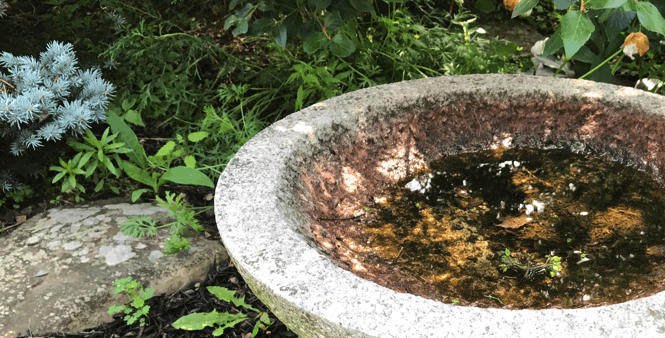An illness is impacting birds in certain parts of the country. As a precautionary measure, MassWildlife is urging the public to report observations of dead birds and stop using bird feeders at this time.
In late May, wildlife managers in Washington D.C., Maryland, Virginia, West Virginia, and Kentucky began receiving reports of sick and dying birds with eye swelling and crusty discharge, as well as neurological signs. More recently, additional reports have been received from Delaware, New Jersey, Pennsylvania, Ohio, and Indiana. While the majority of affected birds are reported to be fledgling common grackles, blue jays, European starlings, and American robins, other species of songbirds have been reported as well. No definitive cause(s) of illness or death have been determined at this time.
While there is always an increase in reports of dead birds at this time of year due to natural high mortality rates of young birds, MassWildlife is encouraging the public to report any observations of sick or dead birds (with unknown cause of mortality) as a precaution to help track this widespread mortality event. However, the mystery disease is not known to be in any of the New England states at this time. It is not necessary to report dead birds where strong evidence links the mortality to collision with glass or vehicles or predation by cats. Report observations and upload photos below.
As another cautionary measure, MassWildlife and Mass Audubon are also recommending the public to stop using all bird feeders and bird baths at this time. Birds congregating at bird feeders and bird baths can transmit diseases to one another. MassWildlife, as well as other wildlife agencies in the region, recommend taking the following precautions:
- Cease feeding birds until this wildlife morbidity/mortality event subsides.
- Clean feeders and bird baths with a 10% bleach solution (one part bleach mixed with nine parts water), rinse with water, and allow to air-dry.
- Avoid handling birds unless necessary. If you do handle them, wear disposable gloves and wash hands afterwards.
- If picking up a dead bird, place an inverted plastic bag over your hand to avoid direct contact with the bird. To dispose of dead birds, place them in a plastic bag, seal, and discard with household trash or alternatively bury them deeply.
- Keep pets (including pet birds) away from sick or dead wild birds as a standard precaution.
At this time of year, birds are able to find plenty of natural foods on the landscape without needing bird seed. MassWildlife advises that seed from bird feeders can draw the unwanted attention of squirrels, chipmunks, turkeys, mice, rats, and even black bears. Wild animals that become habituated to human-associated foods like bird seed can become a nuisance, spread disease, and cause problems. You can learn how to attract birds to your yard naturally throughout the year using native plants. Get tips here.



Recently on Twitter